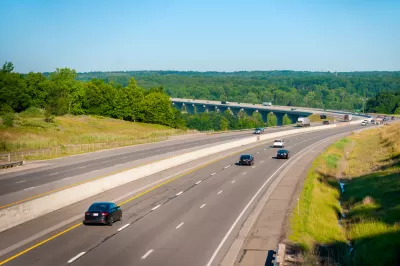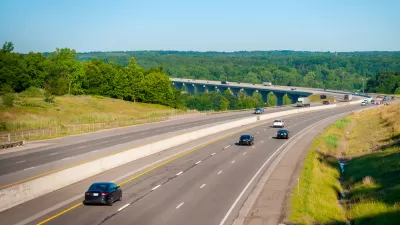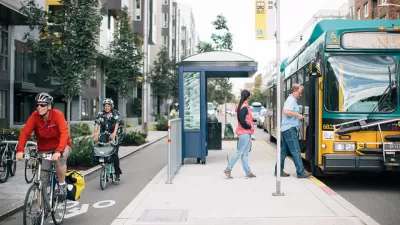The Northeast Ohio Areawide Coordinating Agency (NOACA) is considering a new policy that will add considerations about regional economic inequities when evaluating potential highway projects.

"Recognizing that highways reward some areas and penalize others, [Northeast Ohio’s] top transportation planning agency is drafting a policy to quantify whether adding new interchanges to the system would exacerbate historical patterns of inequity," reports Steven Litt.
The Northeast Ohio Areawide Coordinating Agency (NOACA) is federally mandated to oversee transportation planning for the region that includes Cuyahoga, Lake, Geauga, Lorain and Medina counties.
"By developing the new policy, NOACA aims to look beyond a traditionally narrow focus on safety and mitigation of traffic congestion to consider broader impacts on regional economic development patterns, transit, and environmental sustainability," according to Litt.
"Criteria under consideration, and reviewed in the most recent meeting of NOACA’s policy committee on July 10, include whether a new interchange would facilitate redevelopment of 'declining and abandoned areas,‘' or encourage transit-oriented development in areas with higher densities of population." NOACA is expected to make a decision about the new policy by December. If approved, the new policy would immediately apply to eight projects in the planning pipeline.
An earlier article by Litt details NOACA's work on eNEO2050, a 20-year vision for the region that promised to focus on social equity, particularly for households without cars. That plan is expected for completion in 2021.

Alabama: Trump Terminates Settlements for Black Communities Harmed By Raw Sewage
Trump deemed the landmark civil rights agreement “illegal DEI and environmental justice policy.”

Planetizen Federal Action Tracker
A weekly monitor of how Trump’s orders and actions are impacting planners and planning in America.

Why Should We Subsidize Public Transportation?
Many public transit agencies face financial stress due to rising costs, declining fare revenue, and declining subsidies. Transit advocates must provide a strong business case for increasing public transit funding.

Understanding Road Diets
An explainer from Momentum highlights the advantages of reducing vehicle lanes in favor of more bike, transit, and pedestrian infrastructure.

New California Law Regulates Warehouse Pollution
A new law tightens building and emissions regulations for large distribution warehouses to mitigate air pollution and traffic in surrounding communities.

Phoenix Announces Opening Date for Light Rail Extension
The South Central extension will connect South Phoenix to downtown and other major hubs starting on June 7.
Urban Design for Planners 1: Software Tools
This six-course series explores essential urban design concepts using open source software and equips planners with the tools they need to participate fully in the urban design process.
Planning for Universal Design
Learn the tools for implementing Universal Design in planning regulations.
Caltrans
Smith Gee Studio
Institute for Housing and Urban Development Studies (IHS)
City of Grandview
Harvard GSD Executive Education
Toledo-Lucas County Plan Commissions
Salt Lake City
NYU Wagner Graduate School of Public Service





























